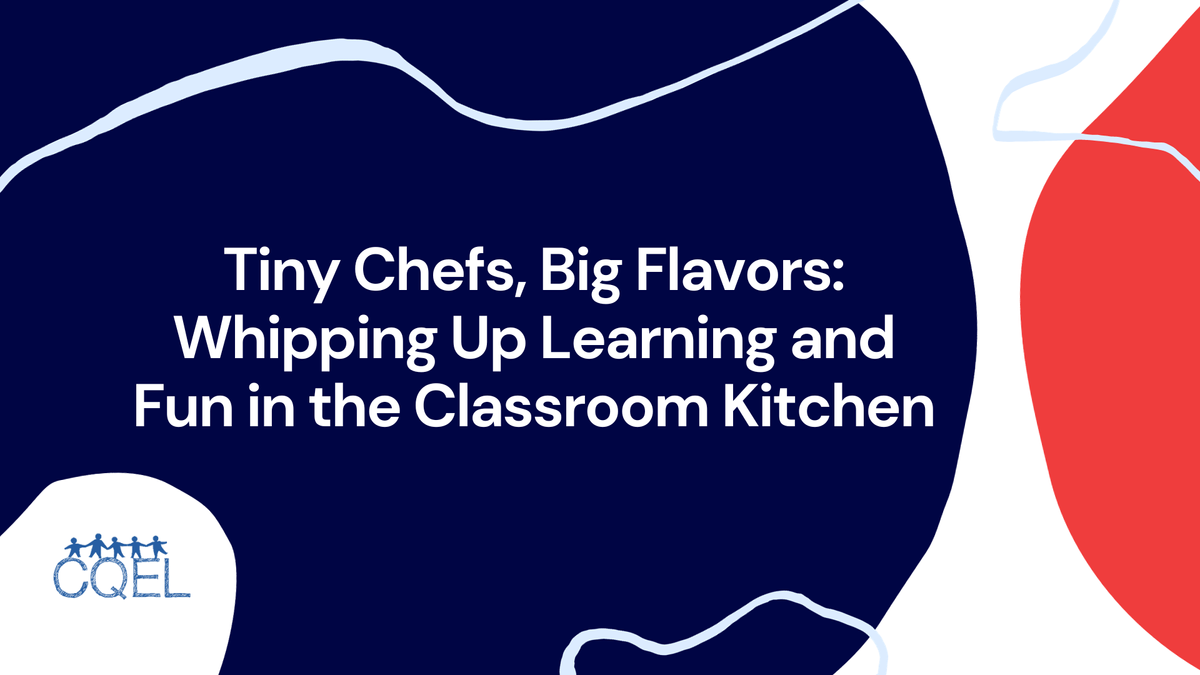Tiny Chefs, Big Flavors: Whipping Up Learning and Fun in the Classroom Kitchen
Unleash tiny chefs in your classroom! Whip up learning & fun with playful kitchen adventures. Discover sensory feasts, math made yummy, & teamwork in action. From language labs to confidence boosters, cook up delicious recipes & big smiles!

Move over bland cafeteria lunches and predictable snacks! It's time to transform your classroom into a culinary coliseum, where tiny chefs don aprons and conquer the world of food, one playful recipe at a time. Forget dusty cookbooks and sterile environments – embrace the messy magic of kitchen adventures and watch learning simmer as deliciously as your next batch of cookies!
Here's why turning your classroom into a culinary haven is more than just fun and games:
1. Sensory Feast: From squishing squishy berries to chopping crunchy vegetables, cooking engages all five senses. It's a science lab in action, building fine motor skills, exploring textures and flavors, and sparking curiosity about the world around them.
2. Math Masters in Training: Measuring ingredients, doubling recipes, and counting bites – cooking is a sneaky way to make math engaging and practical. Suddenly, fractions become tangible and division a delicious game of sharing.
3. Language Lab Extravaganza: From following instructions to discussing favorite flavors, cooking fosters language skills naturally and engagingly. New vocabulary explodes as tiny chefs name ingredients, describe textures, and share their culinary creations.
4. Teamwork Makes the Dream Work: Cooking fosters collaboration and communication. Children learn to work together, take turns, and problem-solve as they navigate recipes and share kitchen space. It's a lesson in cooperation that goes far beyond the classroom walls.
5. Confidence Chefs: The pride of creating something delicious is a powerful confidence booster. Seeing their dishes enjoyed by friends and family gives kids a sense of accomplishment and empowers them to explore new flavors and skills.
Ready to whip up some learning fun? Here are some tips to get you started:
- Keep it Simple: Start with age-appropriate recipes that involve safe tasks and minimal fuss. Let them mix, stir, and decorate!
- Play with Presentation: Make food fun! Cut sandwiches into shapes, arrange fruit into smiley faces, and let creativity run wild in the plating.
- Celebrate Diversity: Explore cuisines from around the world. Let children learn about different cultures through the flavors and dishes they create.
- Safety First: Make sure everyone knows the kitchen rules and follows basic safety guidelines.
- Embrace the Mess: Don't let spills and splatters dampen the fun! The kitchen is a messy place, and that's part of the joy!
So, dust off those spatulas, roll up your sleeves, and prepare to witness the culinary magic unfold. Remember, tiny chefs learn best through playful discovery. Let them explore, experiment, and get their hands dirty – because in the kitchen, the best lessons are seasoned with laughter and sprinkled with delicious fun!
Additional resource:
- Food and Nutrition Service: U.S. Department Of Agriculture:https://www.fns.usda.gov/tn/recipes-healthy-kids-cookbook-homes
Bonus Tip: Involve parents and families! Share recipes, host classroom potlucks, and encourage families to continue the culinary adventures at home.
Get ready to transform your classroom into a vibrant, delicious learning hub, where tiny chefs create big memories and even bigger flavors! Remember, the kitchen is more than just a place to cook – it's a classroom, a laboratory, and a playground for curious minds and hungry imaginations. Bon appétit!
